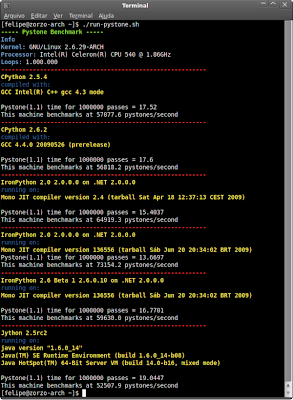IronPython at PyCon 2010
PyCon 2010 , the annual international Python conference is coming soon (February 17th 2010 in Atlanta US). The schedule of talks is now up, and as usual there are several IronPython related talks . 67. IronPython Tooling By Dino Veihland, core IronPython developer: One of the most popular requests for the IronPython team is tooling support. During this talk I’ll show you some of the existing tools available to help create IronPython applications. I’ll also look at the latest IronPython features which can help you debug, profile and improve your applications. I’ll also compare and contrast these with the solutions available for CPython that you may already be familiar with. 71. Python in the Browser By Jimmy Schementi (Microsoft program manager for IronPython / IronRuby Silverlight integration): You write your server code in Python because you want to. You write your browser code in JavaScript because you have to. But with IronPython and Silverlight, you can write your brows...

